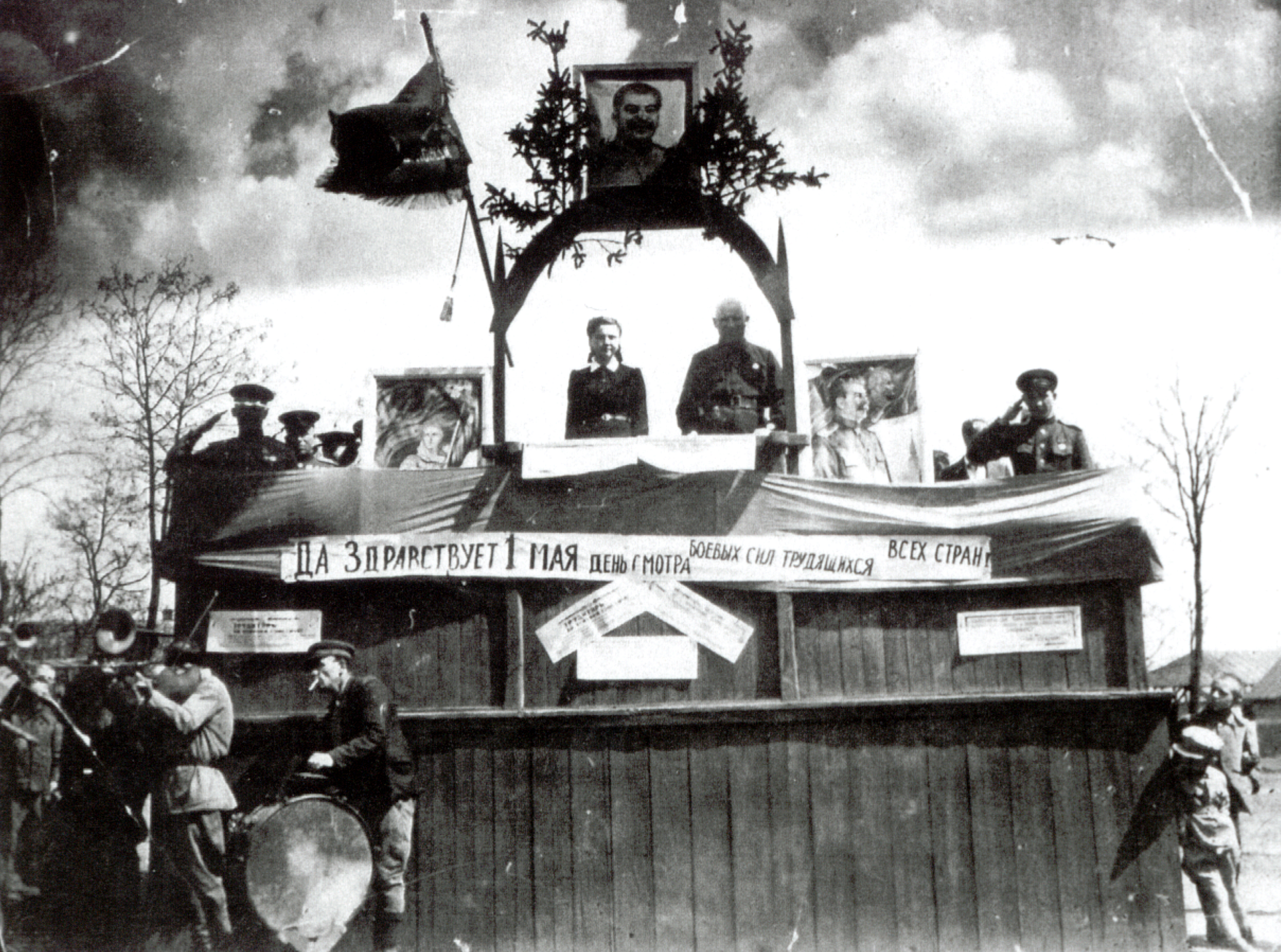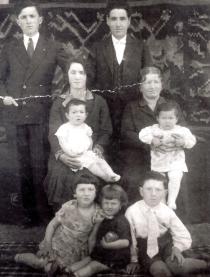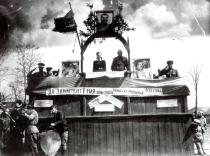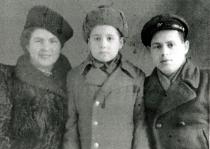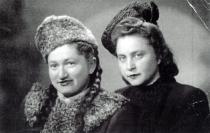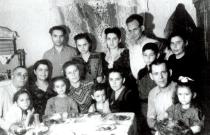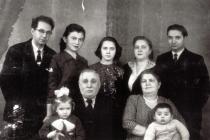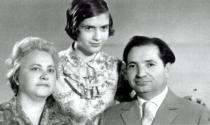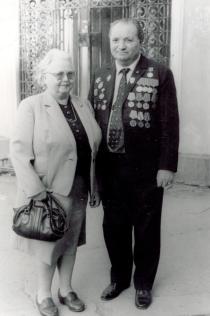This is a picture of me greeting the people of Faleshty at the meeting on 1st May on behalf of the pioneer organization of Faleshty. The photo was taken in Faleshty in 1941.
I started to study at a Romanian school for girls in 1937. There were no Jewish schools in Faleshty. We studied in Romanian. All children spoke fluent Romanian. There were many Jewish girls at this school. I had finished the 3rd grade before Moldavia became part of the Soviet Union. In 1940 the USSR declared an ultimatum to Romania about the return of Bessarabia, which became part of Romania in 1918. Romania agreed to transfer these areas. There was anarchy in our streets for three days after the Romanian army had left and the Soviet army hadn't arrived yet. Everyone came into the streets when the Romanian army was leaving. There were tables with bread, butter, sausage and new Moldavian wine in the streets. People liked the Romanians - life in town was good when they were in power. On 28th June 1940 everyone in town came out into the streets to meet the Red Army. According to Russian tradition the 'liberators' were met with bread and salt. We liked to see Russian soldiers talking to officers and addressing each other with the word 'comrade'. There was a strict subordination in the Romanian army, and it was hard to imagine anything like that.
The euphoria about the 'liberation' was over soon. There was a lack of food products in stores, and people were queuing to buy food. Bread in stores had a terrible taste. We were starving. Children and older people were starving to death. Due to the currency change one ruble was 40 lei, and we didn't have enough money to buy the most necessary things. People who moved here from the USSR were astonished how inexpensive life was in our area. A chicken cost 40 lei at the market. It was rather cheap for them while my father had to work a whole day to earn 40 lei. Many wealthier people, Zionists and even those that had been involved in revolutionary activities during the Romanian regime, were arrested and exiled. The Soviet power didn't touch my father since he only had a few apprentices in his shop and therefore wasn't considered an 'exploiter'.
A Russian school was opened in town. All Romanian schools were closed. We didn't know a single word in Russian, and our teacher didn't know Romanian. I was lucky that my parents knew Russian because they grew up in Faleshty when the town belonged to Russia. I became one of the first pioneers in Faleshty, which was a big honor for me.
